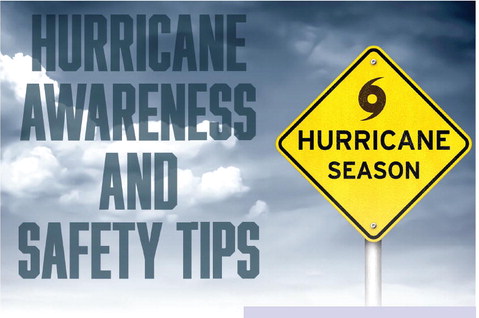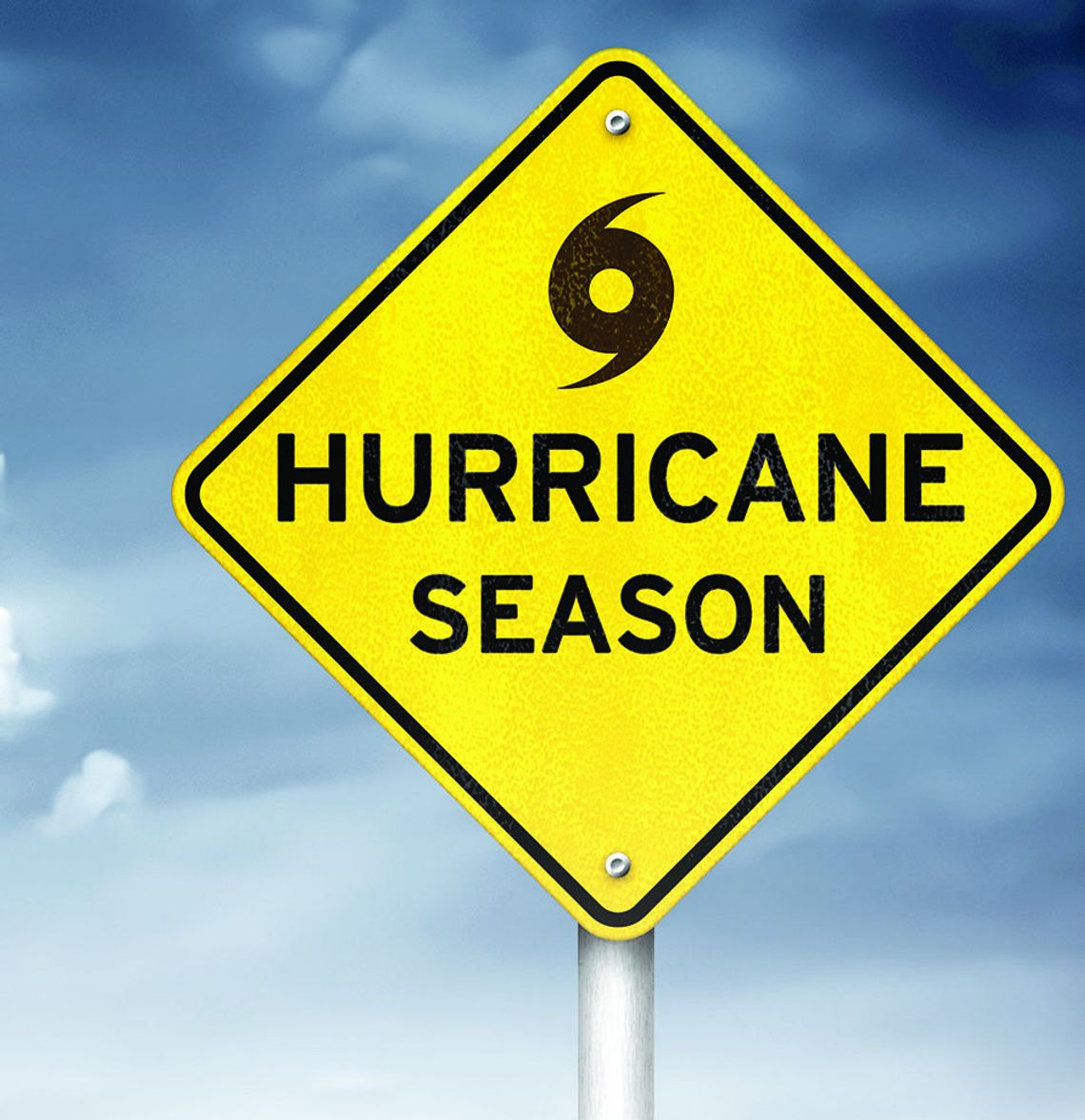Colorado County Emergency Management Coordinator Charles Rogers said last week that the time is now to start preparing for the upcoming hurricane season.
“It is very important to be prepared early for this hurricane season as we have seen in the past we do not know what the impacts of international events will have on local stores and supplies,” Rogers said. “It is always important to get ahead of the game especially in the areas of batteries, flashlights and dry goods that may have been saved for last year’s hurricane season and need to be rotate it out. The other view of that is when you are preparing for hurricane season though same preparations can assist in local storms, man-made events and other emergencies that have the same needs have preparation items that a hurricane does.”
According to weather experts, Texas is one of four states at an increased risk of seeing a direct hit from a hurricanes and major hurricanes or tropical storms with the coming 2025 Atlantic hurricane season, Between 16 and 20 named storms, including 8–10 hurricanes, and 4-6 major hurricanes are expected in 2025. The 2025 Atlantic hurricane season is expected to be another devastating year, with early forecasts suggesting it could resemble the 2024 season, which was one of the most destructive and catastrophic years on record.
Based on that, we’re calling for a somewhat active year: 16-20 named storms, 8-10 hurricanes, and 4-6 major hurricanes.
“I would encourage everyone to pay special attention to their insurance coverage and policies. As we seen in hurricane Harvey, hurricane Buryl, and winter storm Uri, the dependence upon FEMA to be your primary source of disaster repair funds has not only been ineffective, but there has to be a large amount of documented damage loss before FEMA is even involved and then a disaster declaration has to be signed by the President,” Rogers said. “All these steps take time, and it could take 4 to 8 weeks before FEMA even arrives on location, if approved, before any applications can be processed. FEMA is supposed to be the last resort and then it will never be enough.
“Everyone should look at their insurance coverage policies and go over them with your insurance provider to make sure you have not only adequate coverage monetarily wise but also are all storm related damages covered by a single policy or must you have additional riders in the policy,” Roger said. “For example, you may not live in a floodplain and therefore you would think that you may not need flood insurance, but most insurance companies will say if the water comes from inside the house, your policy will cover the damage but if the water comes from outside the house then that is classified as flooding and you would need a separate policy. Please go over these possible situations with your insurance provider and make sure that you have the coverage you need and that you have enough coverage for content and if you have to totally rebuild.”
Another issue that we found during hurricane Harvey is the property in your name. I have several examples of people applied to FEMA for assistance and you have to own the property. Your name has to be on the title deed. We encountered some families that had inherited properties but never change the paperwork. This caused a long delay and we had to have attorneys get involved to assist and getting the deeds changed over into the owner’s name. This Again resulted in delays lasting for weeks.
In support of hurricane preparedness efforts across the state, the Texas Department of Public Safety (DPS) reminds Texans to make an emergency plan now as the 2025 Atlantic Hurricane Season—which runs June 1 through November 30—nears.
Below are some safety reminders to help you and your loved ones be better prepared.
HURRICANE PREPAREDNESS SAFETY TIPS:
• Assemble an emergency kit that includes items such as water, non-perishable food, medications, first aid kit, flashlights, batteries, battery-powered radio, personal hygiene items and important documents. Ensure your kit is stored in an easily accessible location, like your vehicle.
• Review hurricane evacuation maps and identify your local evacuation zones. Choose at least two routes in case you need to evacuate.
• Keep your vehicle fueled and ready to go in case evacuation becomes necessary.
• Consider any special needs for individuals with disabilities or the elderly, including appropriate transportation and support. Ensure they have access to needed medications, medical equipment and mobility aids.
• If you have pets, be sure you have plans in place for their safety, too.
• Sign up for emergency alerts to receive real-time information and always follow evacuation orders from local authorities.
Rogers said local residents need to stay vigilant throughout the entire hurricane season even though in the area it seems to fire up around August.
“It seems that this time of year presents unique challenges to Texans that reside in the coastal plains in our part of South Texas. In the past, our hurricane season didn’t really begin to fire up until the last part of August,” Rogers said. “In the meantime, we deal with excessive heat, wildland fires, expansive soils that affect water and sewer lines as the soils move back and forth, and the sudden storms in the early to late spring and anytime during the summer our systems may come off the gulf. I would encourage residents to buy a NOAA weather radio that can be run off batteries, have an emergency plan that addresses actions at home and a common place to meet should you be separated, and all forms of communications are out. Ready.gov and tdem.texas. gov website have great guidance on planning and preparing for an emergency.
DPS warns that if you, a family member, or neighbor are dependent on medical machines that require power, there are two things that you can do. First contact your power provider and make sure that your address is registered as a priority in restoration of power. Second, go to www. stear.texas.govand fill out the registration page to see that local Emergency Management officials are aware of your needs and potential assistance in an emergency, especially evacuation, if needed.
Rogers said that if a hurricane threatens the Colorado County region, the office of Emergency Management will use its alerting system called Code Red to warn residents. Rogers said residents need to register to receive the warnings.
“To register you can go to the Colorado county web page, the Colorado County Sheriff’s Department web page and these cities of Columbus Eagle Lake and Weimar’s web pages, Find the icon that says Code Red and click. You will be taken to a registration page for information on how you would like to receive notifications,” Rogers said. “We also use Facebook, KULM and surrounding radio stations to try to get the word out to everyone. We also send our information that needs to be disseminated to the public to our county newspapers, and they post it on their websites as well.
“While everyone has their favorite information outlet, I would ask everyone that if you need official information to look at the Colorado county office of Emergency Management Facebook page and county/ city web pages,” Rogers said. “With most of the television stations originating out of the Houston area a lot of times that information can be generalized for 13 counties and not specific for Colorado county unless the event is happening here.”
Governor Greg Abbott raised awareness about the dangers of hurricanes and the precautions Texans can take as hurricane season approaches by proclaiming May 26-31, 2025, as Hurricane Preparedness Week in Texas.
“The State of Texas knows all too well the devastating power of hurricanes,” said Governor Abbott. “From storm surges to high winds, hurricanes pose a threat to life and property. This Hurricane Preparedness Week, it is crucial that every family, business, and community take proactive measures and stock up on emergency supplies to protect themselves, their loved ones, and their property as hurricane season approaches. By taking the time now to prepare for any devastating and powerful storms that may reach our shores, we can help foster a safer and more secure future for our state.”
In support of hurricane preparedness efforts in the state, the Texas Division of Emergency Management (TDEM) has reviewed the appropriate emergency management planning documents to ensure they are updated to meet community needs in the event of a hurricane. TDEM also held its annual hurricane exercise, which included partners from all levels of government and the private sector.
The 2025 Atlantic Hurricane Season runs June 1-November 30, 2025. Texans can visit the Texas Hurricane Center for information on proactive steps to take before, during, and after a hurricane. Texans can also visit TexasReady.gov for additional hurricane safety tips and tdem.texas. gov/prepare for preparedness information.
EMERGENCY CONTACT INFORMATION • City of Columbus: 979-732-2366
• Columbus Police: 979-732-3351
• City of Eagle Lake: 979-234-2640
• Eagle Lake Police: 979-234-2727
• City of Weimar: 979-725-8554
• Weimar Police: 979-725-8060
• Colorado County Sheriff: 979-732-2388
• Colorado County Emergency: 979-733- 0184
• Colorado County Texas Office of Emergency Management: Facebook Page
• American Red Cross: 1-800-733-2767 or redcross.org
• FEMA: 1-800-621-3362 or FEMA.gov
• Texas Division of Emergency Management: TDEM.texas.gov

.jpg)



